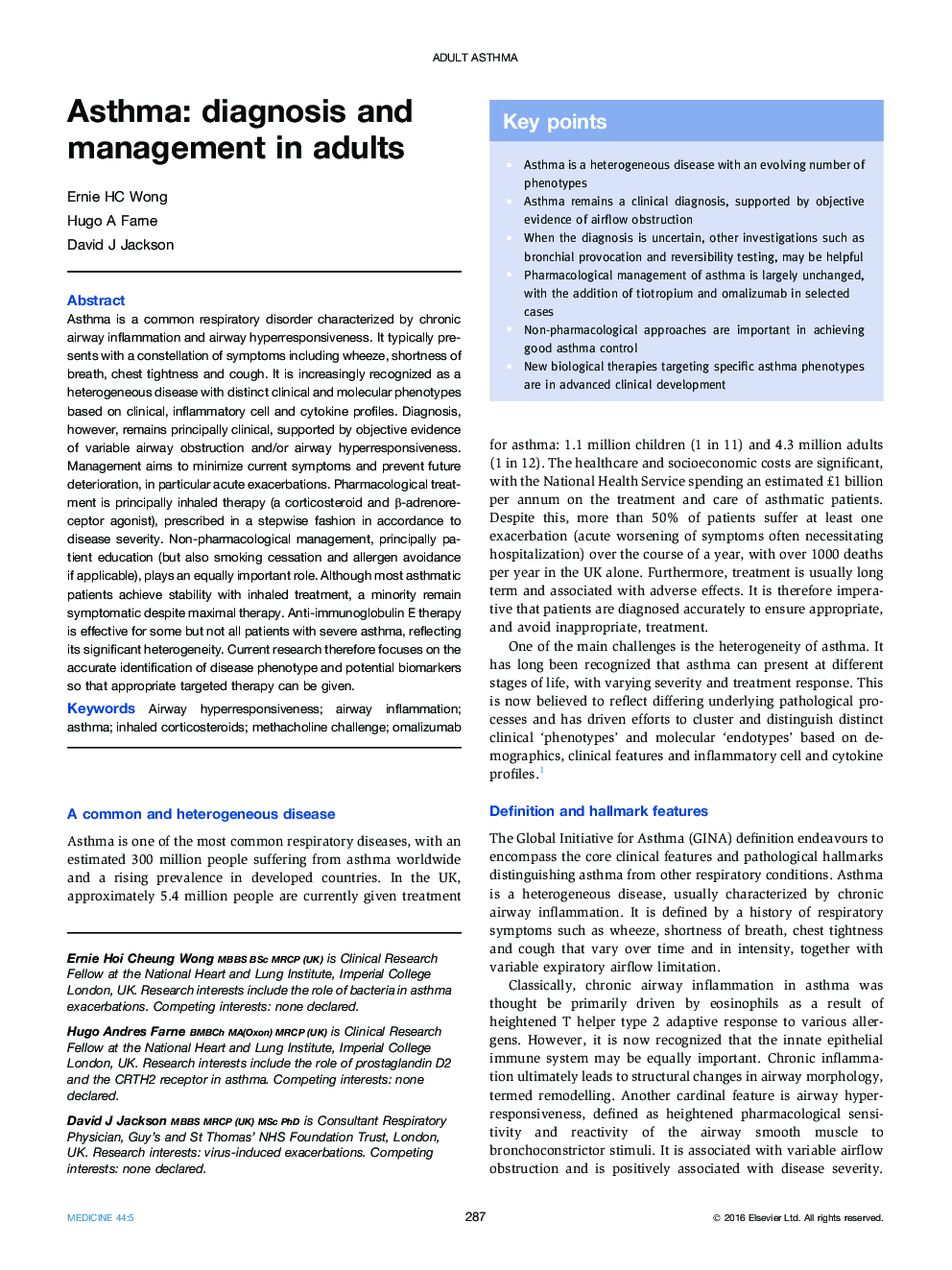| Article ID | Journal | Published Year | Pages | File Type |
|---|---|---|---|---|
| 3803613 | Medicine | 2016 | 10 Pages |
Asthma is a common respiratory disorder characterized by chronic airway inflammation and airway hyperresponsiveness. It typically presents with a constellation of symptoms including wheeze, shortness of breath, chest tightness and cough. It is increasingly recognized as a heterogeneous disease with distinct clinical and molecular phenotypes based on clinical, inflammatory cell and cytokine profiles. Diagnosis, however, remains principally clinical, supported by objective evidence of variable airway obstruction and/or airway hyperresponsiveness. Management aims to minimize current symptoms and prevent future deterioration, in particular acute exacerbations. Pharmacological treatment is principally inhaled therapy (a corticosteroid and β-adrenoreceptor agonist), prescribed in a stepwise fashion in accordance to disease severity. Non-pharmacological management, principally patient education (but also smoking cessation and allergen avoidance if applicable), plays an equally important role. Although most asthmatic patients achieve stability with inhaled treatment, a minority remain symptomatic despite maximal therapy. Anti-immunoglobulin E therapy is effective for some but not all patients with severe asthma, reflecting its significant heterogeneity. Current research therefore focuses on the accurate identification of disease phenotype and potential biomarkers so that appropriate targeted therapy can be given.
